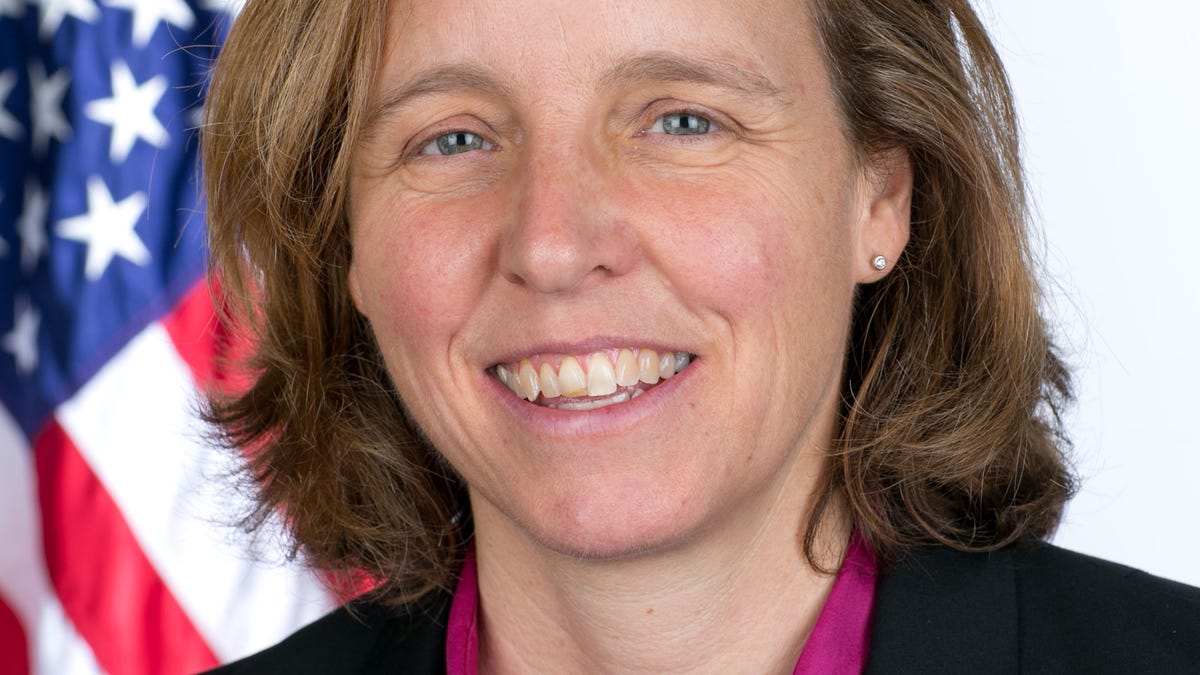US CTO Megan Smith highlights heritage of women in tech
The former Googler and current chief technology officer of the United States also talks about encryption and bringing more techies to government.

Megan Smith, a former Google executive, joined the Obama administration in 2014.
Sixty years ago -- when computers were big, bulky and new -- a large chunk of computer scientists were women.
That changed sometime in the 1980s, when the number of women in tech "went off a cliff," said Megan Smith, chief technology officer of the United States. A career in computers had become what men went after.
"One of our challenges is that we actually don't know our real history," Smith said Thursday.
Speaking at a Q&A in Manhattan hosted by Hearst Magazines, Smith talked about the benefits of adding technologists to the federal workforce as well as the Obama administration's stance on encryption. A big focus for her, though, was highlighting women technologists and scientists to help inspire the next generation of female engineers and mathematicians.
Before joining the Obama administration in 2014, Smith worked as vice president of Google X (now simply called X), the search giant's secretive group that develops ambitious projects, like self-driving cars and delivery drones. An engineering grad from the Massachusetts Institute of Technology, she also led Google's philanthropic arm, Google.org, and helped pull together some of the company's most important new platforms, such as Maps and Earth.
Here are some highlights from Smith's talk.
Calling all techies
You know that poster of Uncle Sam pointing a finger and saying, "I Want You"? The way Smith sees it, Uncle Sam should be pointing at Silicon Valley.
In her Q&A, she talked about the federal government needing to appeal to young, ambitious minds in tech. The goal would be to get these people to work short "tours of duty" in government, so that they could help modernize federal agencies and add fresh ideas.
"We're trying to make this cool, and it is cool," she said about government work.
The government has already been able to rotate in lawyers, economists and scientists to generate new concepts; it needs to do a better job attracting technologists, Smith said.
"It's our country, together. Whatever we all will do as citizens of this country will be what this country is," she said. "[There's] this notion that we should have a tour of service, a tour of duty -- not a choice between a startup or this."
Relearning history
Women played critical roles in the early development of computers, Smith said, but that history is often forgotten.
Click above for more on women in tech.
She pointed to Grace Hopper, a US Navy rear admiral, computer scientist and mathematician who was instrumental in creating the COBOL programming language, and Katherine Johnson, a NASA aeronautics mathematician who calculated the trajectory for Alan Shepard, the first American in space. John Glenn, the first American to orbit Earth, specifically asked Johnson to double-check a computer's calculations before his flight. Johnson received the 2015 National Medal of Freedom.
"We think computers are for our boys, [but] it's always been all of us inventing things," Smith said. "These people have been doing this the whole time. And not knowing this heritage is really hurtful. It's debilitating, really."
It won't be easy attracting more women and minorities to the tech industry, where company cultures and policies need to change to help bring in others.
"The overt bias has gone away, pretty much," Smith said. "It lives as institutional or unconscious bias, which is hard."
Obama and encryption
Smith didn't hold back from wading into a heated debate on encryption, personal privacy and national security. The Federal Bureau of Investigation and the Department of Justice are working to compel Apple to hack into iPhones used by terrorists and criminals. On Friday, the DOJ told a federal court in New York that it will appeal a ruling that said Apple didn't have to help unlock an iPhone 5S used by a drug dealer.
"The president has been really clear in his support of strong encryption and how important that is for cybersecurity, for privacy, etcetera," she said. President Barack Obama last week said he wouldn't support a bill that would require tech companies to crack their devices.
Even so, Smith said she's working to get more tech companies to collaborate with the government. She also wants technologists involved in more internal government discussions, potentially easing the tension between law enforcement and tech companies around encryption.

